China’s Private Sector Enters Iranian Port City Of Bandar Abbas
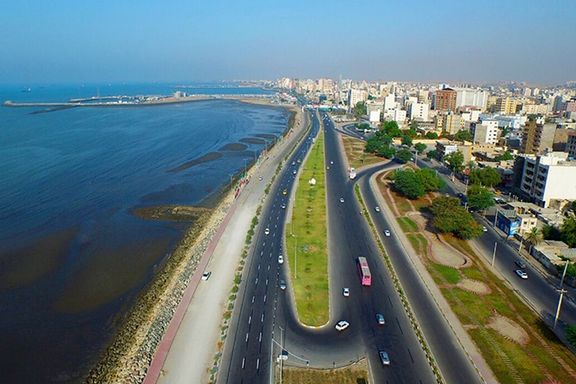
An Iranian official says China’s private sector has entered the port city of Bandar Abbas on the Persian Gulf to evaluate logistics and investment opportunities.

An Iranian official says China’s private sector has entered the port city of Bandar Abbas on the Persian Gulf to evaluate logistics and investment opportunities.
Iran's Secretary of the Shipping Association, Masoud Polmeh however noted that so far there have been no tangible actions leading to significant investment by the Chinese.
He added that “certainly, the Chinese government has not made any investment in Iranian key port city of Bandar Abbas.”
Polmeh also raised hope that the political agreement between Iran and Saudi Arabia could pave the way for signing economic agreements.
China officially opened its Consulate General in Bandar Abbas in December 2022. The opening of the consulate was described as an opportunity to practically implement a 25-year deal between Tehran and Beijing signed in 2021 and China’s ambitious Belt and Road Initiative (BRI), a global infrastructure development strategy to invest in nearly 150 countries.
The BRI, originally named, “One Belt, One Road,” is an international development strategy as China looks to expand its influence worldwide by improving trade routes. As of December 2021, China had expanded its’ BRI—which includes infrastructure developments across land corridors, in ports, across maritime routes, as well as over-land links (bridges, tunnels, etc.)— into 142 countries. Developing diplomatic relations with Iran is crucial to China’s ability to implement the BRI.
Bandar Abbas, the most important Iranian port is also home to a large Revolutionary Guard navy base.
Many Iranians criticize the government's policy of forging deeper relations with China while not resolving disputes with the United States and Europe over its controversial nuclear program.
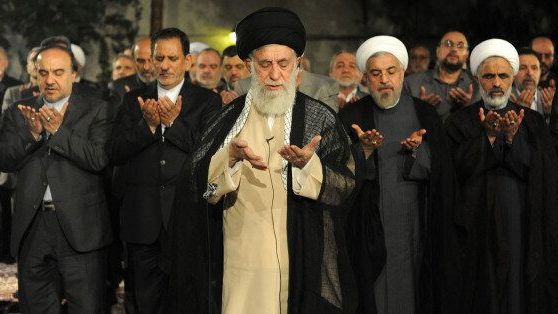
A relatively moderate politician says Iranians no longer believe in the reformist-conservative dichotomy that has been the mainstay of regime politics for 25 years.
Referring to mass disqualification of well-known reformist figures in previous elections, Ghavami told Entekhab news website in Tehran that the people are unlikely to vote for a few low-key reformists who are usually allowed to run for the parliament.
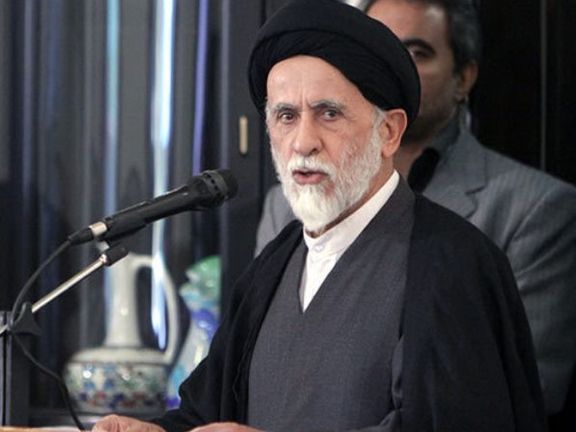
"However, as a lot of people will take part in the elections anyway, they are likely to cast blank ballots in the 2024 parliamentary election," he added in the March 24 interview. However, Ghavami pointed out that the country's biggest problem in the new Iranian year that started on March 21 will be the back-breaking high cost of living.
“Reformists are those politicians and public figures who have long argued that Iran needs change and reforms, but have believed that in its current form the Islamic regime can evolve and become a more democratic political system. Opposing them are ‘principlists’ or conservatives and hardliners who traditionally did not believe in liberalization.
In the 2020 parliamentary and 2021 presidential elections, the Guardian Council that vets candidates according to the constitution blocked almost all reformists from putting forth their candidacy. As a result, all three government branches are now dominated by hardliners loyal to Iran’s authoritarian ruler Ali Khamenei.
Ghavami pointed out the "non-competitive" nature of elections in Iran and said the regime will hold next year’s elections anyway regardless of the people's reluctance to turn out to vote.
In another comment, Ghavami said that Iran needs reforms in the area of foreign policy, but the current administration of President Ebrahim Raisi is incapable of changing course. Probably out of political correctness, he did not mention that foreign policy is controlled by Khamenei.
Rising prices, Ghavami said, are likely to cause a political, economic and social catastrophe in the coming months. Positive change in Iran is unlikely as long as the government cannot solve its domestic and international problems and fails to respond to the demands Iranians have put forward during their protest.
Meanwhile, in an interview, academic Mohammad Javad Gholamreza Kashi said most of Iran's problems are due to the fact that hardliners in the government and parliament have refused to recognize the idea of people's participation in politics.
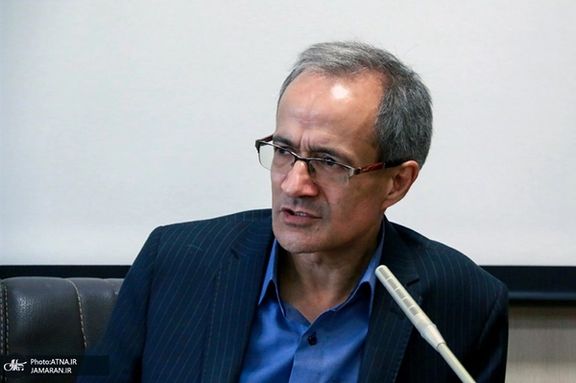
He likened Iran's current situation to a case of childbirth during which the hardliners are determined to kill the baby before it is born. This comes while the society is looking for a natural birth, he said.
Kashi, an assistant professor of law and political science reiterated that while the people of Iran have pluralist demands, the hardliners continue beating on the drums of unilateralism. Explaining this in sociological terms, Kashi said that hardliners are adamant to solve a modern problem with an old and outdated solution.
He traced back Iranians demands to the 1905 Constitutional Revolution that although led to modernism in the form of new buildings, roads, railways and airports after less than half a century, its demands for the rule of law, freedom and justice were never met.
In the meantime, while the people have embraced modernism, Iran's new rulers are the same religious fundamentalist they used to be at the beginning the 20th century. "The baby is still not born," Kashi said, adding that "the people are running out of patience and demand a Cesarean surgery while the hardliners are likely to pull a new trick out of their sleeves."
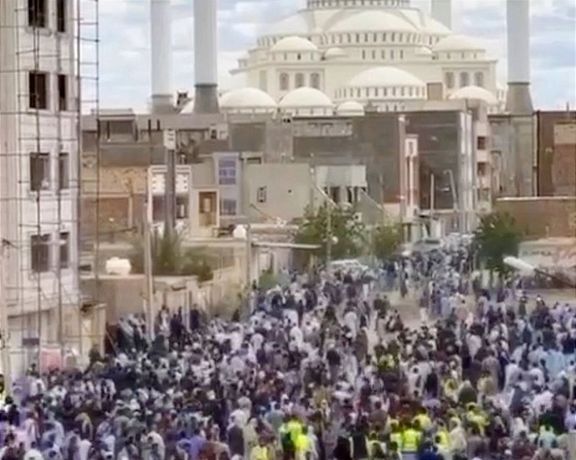
Protests erupted again in Iran’s Sunni majority region Friday as community’s prominent religious leader slammed Islamic Republic for its violence and lack of real elections.
During his Friday prayer sermons, which was the first in the fasting month of Ramadan, Mowlavi Abdolhamid said, "In the past, we have had elections in which we elected representatives and presidents, but they were not real elections, they were appointments.”
In a free election, people have a choice to vote for whoever they deem fit to represent them, but in Iran the Guardian Council puts forth a number of their cherrypicked insiders, who are not capable of running the country, he said.
He further described killing of protesters and harsh treatment of people detained during over six months of nationwide rallies against the regime as a "big mistake" and a "grave sin."
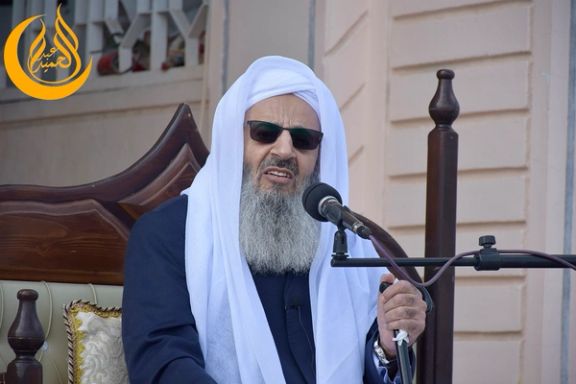
"There are protests everywhere in the world, but they (authorities) listen to the people and do not kill them like they did in Iran. Killing protesting people in Iran was a big mistake. They should not have hit and killed people with gunfire. Many people went to prison and the detainees were treated harshly, which was a painful and regretful incident,” he said.
Abdolhamid went on to say that neither religion, nor sect, should be a factor when it comes to elections, noting that the only people who should be in managerial positions are those who can make Iran prosperous, not like the current officials who only care about filling their own pockets.
Although street protests are not as frequent as the past few months, peoples’ hearts are "wounded and in pain," the cleric maintained.
Portraying the previous Iranian year as a grim year with lots of ups and downs that led to the creation of the current protest movement, he said, “The people of Iran felt difficulties regarding many issues, they saw themselves in trouble and failure in life, they were under the most severe economic pressures that threaten their livelihood."
In addition to economic issues, the outspoken Sunni leader said systematic corruption, as well as unpopular domestic and foreign policies were other factors led the people to revolt.
This Friday again authorities shut down internet access in Zahedan, the provincial capital of Sistan-Baluchestan where Abdolhamid delivers his sermons and it is home to the country’s Sunni Baluch minority of up to two million people. Cyberspace watchdog NetBlocks confirmed the major disruption to internet service, saying that the incident follows an ongoing pattern of network blackouts targeting protests during Friday prayers.
Following his sermons, people of the city held rallies to protest against the Islamic Republic for the 25th week in a row, chanting anti-regime slogans like “We Don’t Want a Child-Killing Regime.” The Sunni Baluch population have taken to the streets in Zahedan every Friday after prayers since September 30 when government forces cracked down on protesters and killed more than 80 protesters, known as Bloody Friday. Earlier in the day, Haalvsh website, a local news outlet that monitors rights violations in Iran's Baluchestan region, said 121 of the protesters who were killed in Zahedan and Khash on Bloody Friday were identified.
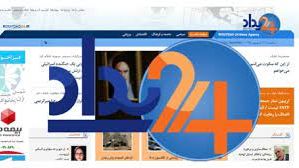
Moderate Iranian news website Rouydad 24, which has been a relatively good source of news about developments in Iran, has been blocked by the country’s authorities.
The media outlet said on Twitter Thursday that the punitive measure was taken without any prior notices, and it is not clear who ordered such a hasty action. It is not clear what specific report triggered the measure.
The news website closed to Iran’s ‘reformists’ published an interview with Amjad Amini, the father of Mahsa (Zina) Amini, a few months ago. Mahsa Amini was the Kurdish Iranian woman whose death in the custody of ‘hijab police’ sparked the current wave of antiregime protests, the biggest the Islamic Republic has faced since its establishment in 1979. Nazila Maroufian and Marzieh Amiri, the outlet’s journalists, were imprisoned temporarily over the interview and their reports on the protests.
The internet filtering committee of the Islamic Republic is chaired by Mohammad Jafar Montazeri, the Islamic Republic’s prosecutor general. Before the site was filtered, Tehran prosecutor Ali Salehi had talked to the media about a lawsuit against the manager of the website for publishing stories about the chemical attacks on Iranian schoolgirls that led to hundreds of girls hospitalized without any real explanation by the Islamic Republic's authorities.
For more than 25 years, intelligence and judicial officials under the control of Supreme Leader Ali Khamenei’s office have been closing newspapers, banning books and films, as well as arresting and imprisoning hundreds of Journalists.
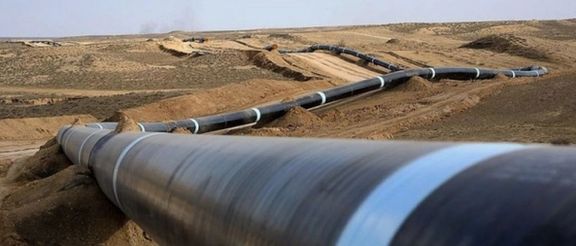
The Biden administration has agreed to a sanctions waiver that will see the Islamic Republic pocket a $500 million payment from Iraq for electricity and natural gas Baghdad imports.
According to a report by Washington Free Beacon on Friday, the administration has given the go-ahead for a sanctions waiver issued by Secretary of State Antony Blinken and transmitted to Congress earlier this week, authorizing Iraq to pay Iran.
The latest sanctions waiver permits "the Trade Bank of Iraq to engage in financial transactions … with the Central Bank of Iran in connection with the purchase of electricity." The payment will be in cash, the report says, something the Iranian regime needs desperately amid a financial crisis that has seen the Iranian currency drop by more than 50 percent since September.
Blinken signed the waiver on March 17, one day after reports surfaced about Iran's claims of imminent receiving of the $500 million, which elicited a denial from the Treasury Department.
Earlier in the month, Hamid Hosseini, the chairman of the Iran-Iraq chamber of commerce claimed that the United States has allowed Iraq to release $500 million of its debts to Iran. Iraq owes Tehran more than $10 billion for energy imports because US banking sanctions do not allow dollar transfers to Iran. However, Hosseini said that Iraq's debt has reached $18 billion.
"Of course the Biden administration lied that they wouldn't waive sanctions on Iran just days before they did so," said Senator Ted Cruz (R., Texas), adding, "They know that by allowing money to pour into Iran, they are not only endangering the safety and security of Americans but also undermining everything they claim to believe about defeating [Vladimir] Putin.”
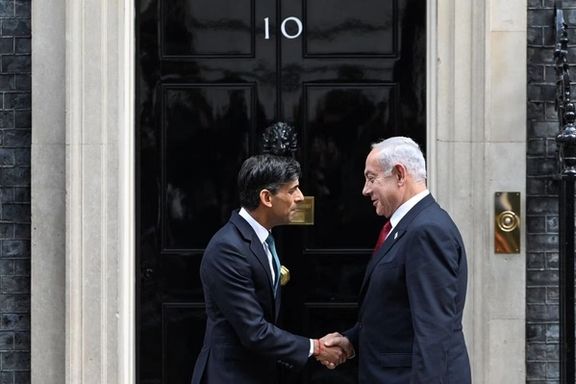
Israeli Prime Minister Benjamin Netanyahu met with his British counterpart Rishi Sunak in London to discuss where Iran’s nuclear threat was discussed among other issues.
Readouts of the Friday meeting from both sides said the two talked about the security and defense challenges they share, including the threat posed by Iran, as well as ways to strengthen the relationship between Britain and Israel.
Netanyahu also invited Sunak for an official visit to Israel, the Israeli statement said. He left Downing Street less than an hour after he arrived as hundreds of protesters gathered at the gates of No 10 to demonstrate against the Israeli prime minister’s policies, especially his overhaul of the judiciary.
Downing Street said that in his meeting with Netanyahu, Sunak "stressed the importance of upholding the democratic values that underpin our relationship, including in the proposed judicial reforms in Israel.”
It added that the two men also discussed the war in Ukraine and Iran's "destabilizing activity", as well as its nuclear program, and agreed that their “governments would continue to work closely together to push back against aggression and manage the risk of nuclear proliferation.”
According to a statement from Netanyahu’s office before his London trip, his meetings are set to focus on the need to formulate a “united international front” against Iran in order to stop its nuclear program.
Earlier in the month, Israeli Foreign Minister Eli Cohen was in London to argue for Jerusalem’s position about the Islamic Republic’s threat and bolster bilateral economic ties.